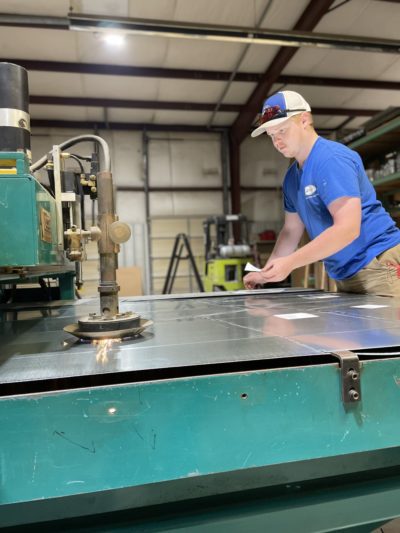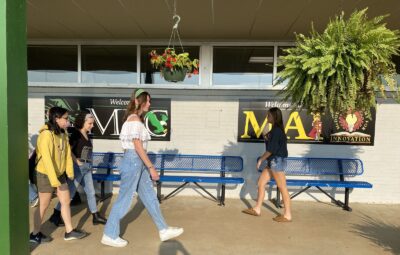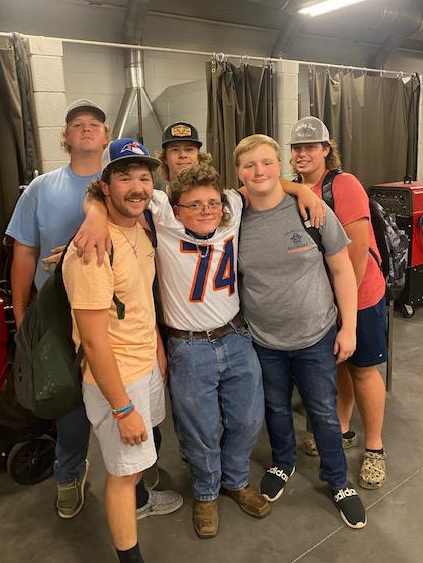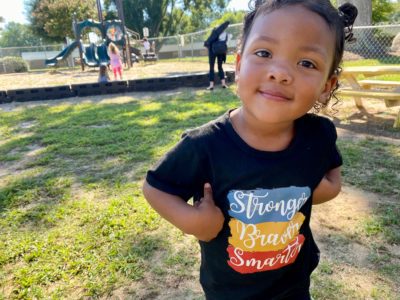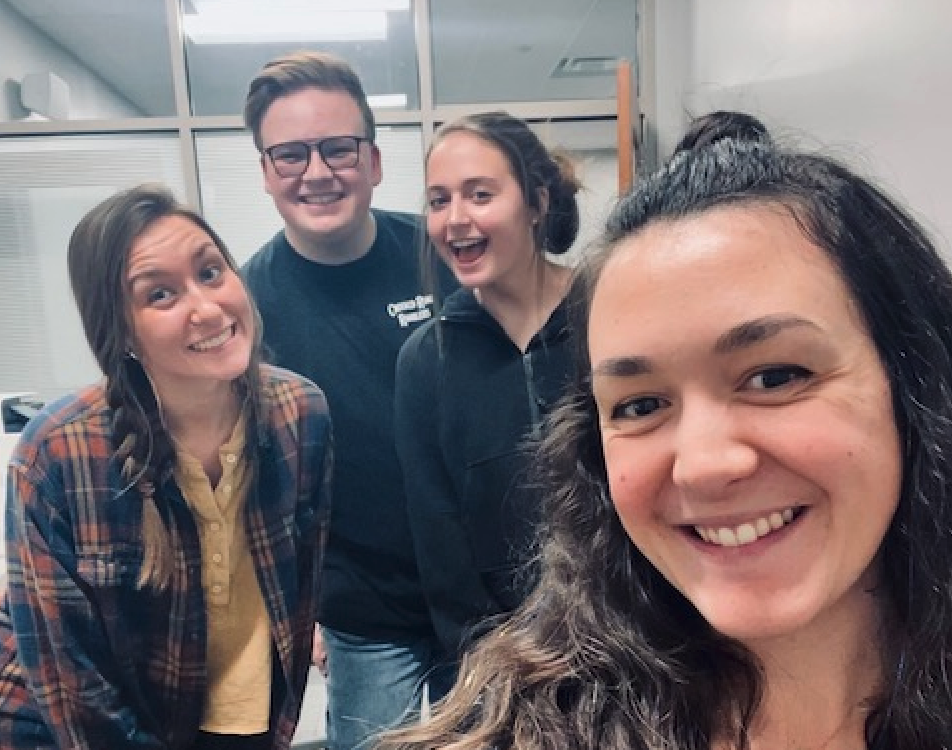

Share this story
- .@rollins_leia, the coordinator for college high school programs at Piedmont Community College, has documented daily life for much of this school year. Find out how CCP makes a difference for her students.
- .@rollins_leia has documented her role as the coordinator for college high school programs at Piedmont Community College for the past several months. Here is a collection of her reflections, which make the case for N.C.'s CCP programs.
|
|
Last fall, EdNC visited all 58 community colleges over the span of four months. We called the campaign Impact58, as it was an opportunity for us to learn more about the impact of our state’s community colleges.
During these visits, we spoke to faculty, staff, and students about the impact Career and College Promise (CCP) has had on their lives and communities.
CCP is a dual-enrollment program that offers qualified students in North Carolina the opportunity to pursue tuition-free college courses while they are still in high school. CCP is administered by the North Carolina Community College System (NCCCS).
Three pathways exist under the umbrella of CCP:
- College Transfer (CTP) pathways: provide tuition-free course credits toward a number of college transfer degrees including the Associate in Arts and Associate in Science – generally the more popular degree-seeking options.
- Career and Technical Education (CTE) pathways: provide tuition-free course credits toward a certificate or diploma. Students may also pursue a Workforce Continuing Education Pathway (WCEP) that leads to a State or industry recognized credential.
- Cooperative Innovative High Schools (CIHS): Located on college campuses and provide opportunities for students to complete an associate degree or earn up to two years of college credit within five years. These are often known as early colleges.
- County by county, we are mapping how CCP plays out for students across the three pathways, including visits to many of the 117 early colleges that partner with a community college.
You can read more about the primary challenges and opportunities of CCP that EdNC identified during our Impact58 visits here.
One of the many champions of CCP that EdNC encountered during our statewide travels in the fall was Leia Rollins, the coordinator for college high school programs at Piedmont Community College (PCC).
“I want policymakers to see what CCP has done for all of my students — from a student taking one class to a student who got their degree,” she told EdNC.
We invited her to do just that by encouraging her to document her work and the impact CCP has on students on her Twitter account. She has been doing so for the past several months, resulting in a virtual archive of student stories that makes the case for supporting CCP programs across the state.
We have compiled her reflections below.
CCP through the lens of Leia Rollins
“At the outset, I felt a twinge of uncertainty about the content I would be able to share. Yet, as the academic year unfolded, a cascade of student experiences, triumphs, collaborative endeavors, and the everyday moments of the Career and College Promise (CCP) program and coaching emerged as snapshots worthy of celebration. … Upon reflection, I was surprised by how much content surfaced from my everyday experiences. ”
Leia Rollins
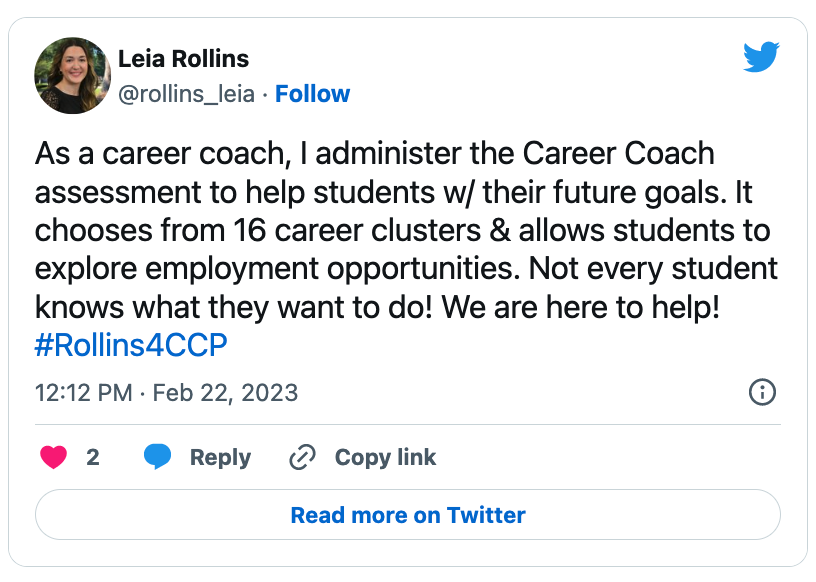

Below is a look at Rollins’ role as a career coach, as well as what the CCP program means to Rollins’ students, and how they use the program to make a difference in their own lives and the lives of others.
What makes CCP worthwhile? Rollins documented the various opportunities unique to the program that her students have been able to participate in. Not to mention the chance to earn an associate degree free-of-charge.
“One of the most rewarding aspects of my role (as a career coach) was the opportunity to expose students to various industries and facilitate field trips,” said Rollins. “Witnessing their firsthand experiences, gaining practical knowledge, and learning alongside my students has been nothing short of gratifying.”
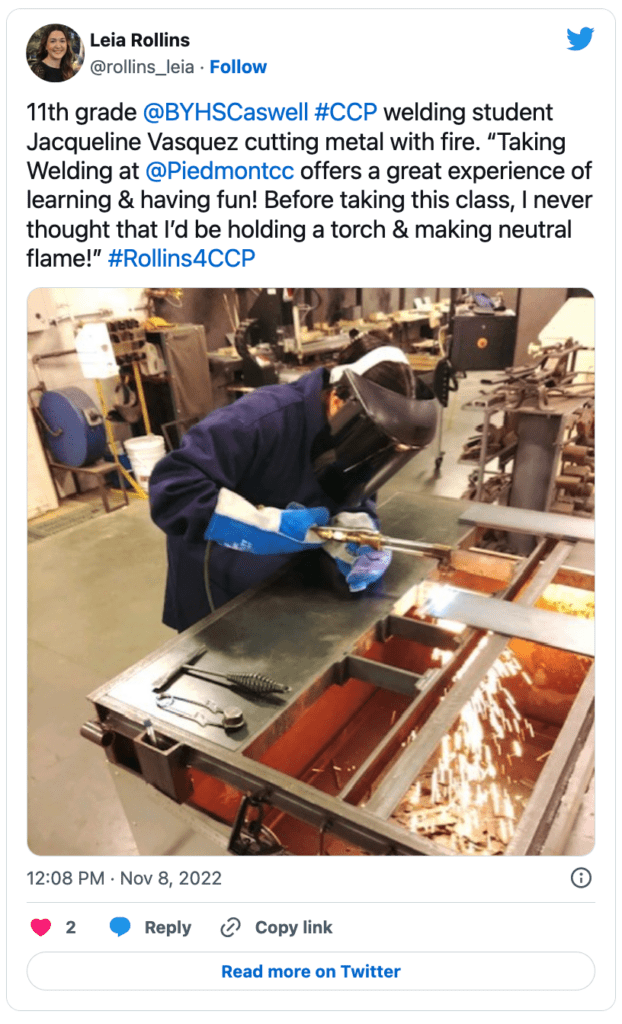

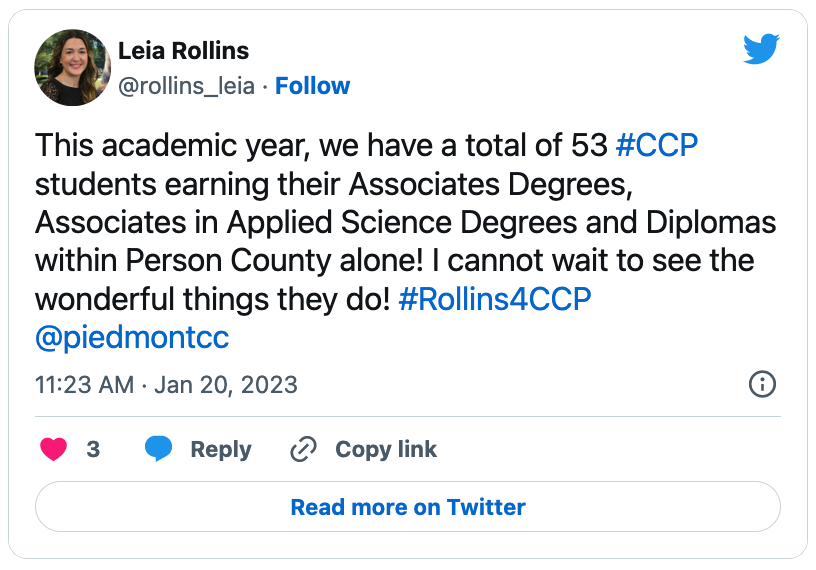

“As I reflect upon this past academic year, I recall the countless student highlights I posted. They embody the essence of celebration and bear testimony to the transformative power of the Career and College Promise Program in the lives of families,” said Rollins.
Here are just a few of the CCP success stories Rollins has had a role in developing throughout her career:
When reflecting on these student success stories, Rollins recalled facilitating the enrollment of advanced welding students who opted for night classes, which allowed them to complete their intermediate certificates.
“Three of these remarkable individuals chose to walk across the grand stage at PCC’s commencement ceremony. The picture below encapsulates these students’ personalities and is a reminder of the profound impact of the Career and College Promise Program,” she said.
An ‘unwavering commitment’ to CCP
It is the dedicated work of faculty and staff like Rollins that make CCP programs as impactful as they are for students across the state.
“The impact on families and the countless blessings that have emerged from the Career and College Promise program are the driving forces behind my unwavering commitment,” said Rollins.
Rollins’ tweets for the past several months only offer a glimpse into the significance of her work and what her students and the CCP program mean to her. It is clear that for both Rollins and her students, CCP makes a real difference.
I love my students, and having the ability to look back at every day of the school year reminded me of why I do what I do. The Career and College Promise program continues to change students’ lives, whether they are learning hard lessons early or leaving with a college degree and high school diploma for free. This program allows all eligible students to take courses, and we, as a college, have broken down barriers to make it more equitable for our students.
Leia Rollins



